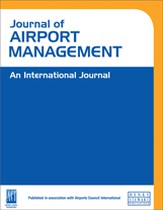Allocating the number of slots among scheduled air routes:A social perspective
Abstract
Runway slot allocation has been an important issue since the deregulation of the airline industry in the USA and other countries. Current slot allocation policies in Europe and the USA consider only the competition between airlines. For areas where airlines compete with surface modes of transport, however, maximising social benefit should be a further factor in the allocation of slots. Thus, this paper proposes an integer programming formulation, validated by the domestic air network in Taiwan, to determine the number of flights on scheduled routes such that net social benefit is maximised. The integer programming formulation is based on the concept of cost-benefit analysis, and includes the value of travel time savings by air service as the benefit, and the extra cost of providing air service as the opportunity cost. The research results suggest that the runway slots at Taipei Songshan Airport should be allocated to flights that serve Taipei and the three offshore islands first because they produce the greatest net social benefit. Although the developed model is most suitable to an air travel market that is highly regulated, such as the case in Taiwan, it is also applicable in some areas regarded as more market-based.
The full article is available to subscribers to the journal.
